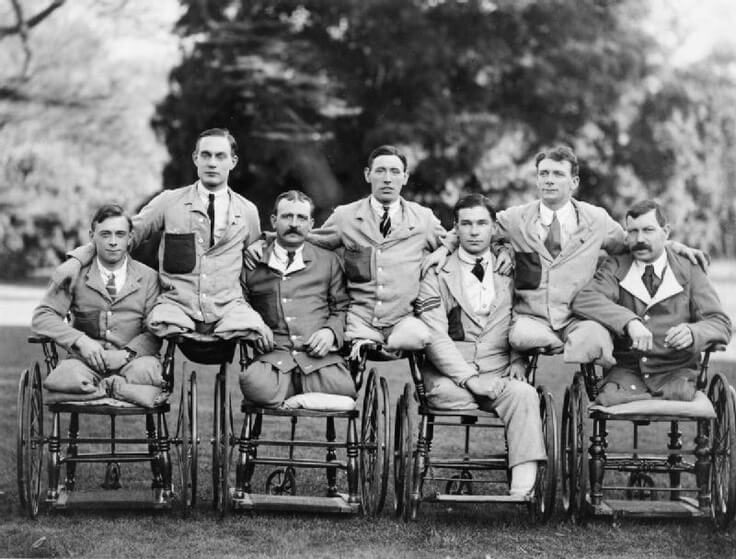|
||
Contemplating the dead warriors who had fallen around him during a First World War battle, French soldier J. Saleilles wondered if their “gift of blood” was not the “supernatural source of life which must be given to our country.” Like a vampire or shark, the nation feeds on—lives off—the body and blood of soldiers. Heroes are men who “give” their entire bodies to their nation. Death in battle is the “supreme sacrifice.” The photo above shows men who gifted only a part of their body—one or two (or three) limbs—and were able to preserve the rest. These men may have been volunteers, or transcripts. In either case, each gave up a body part to the national god. A leg or an arm had been consumed by the nation. The men in the photo seem confident, even proud. They had not shirked their duty; had not resisted the call of their country. Elaine Scarry describes injury in battle as the “mining of the ultimate substance,” the ultimate “source of substantiation.” The loss of a body part testifies to the power of the nation-state. “Where limbs were, there shalt nation be.” The absence of a body part conveys the presence of the nation. |
 Limbless British Veterans after the First World War (Roehampton Military Hospital)
Limbless British Veterans after the First World War (Roehampton Military Hospital)